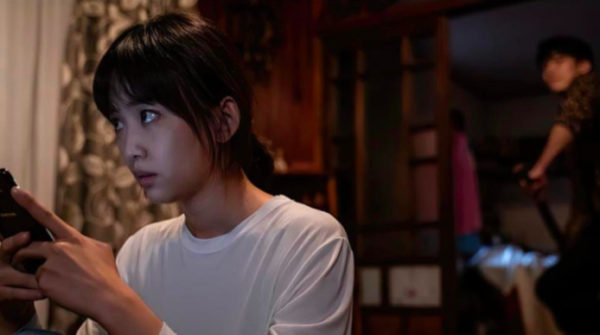
I’ve always been fond of women in peril films, particularly when they put a unique spin on the subgenre.
[Read more…]The curated portfolio of film journalist Joe Lipsett
by Joe Lipsett

I’ve always been fond of women in peril films, particularly when they put a unique spin on the subgenre.
[Read more…]by Joe Lipsett
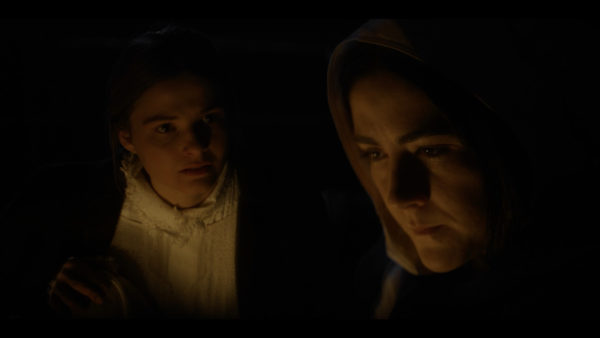
God is at the core of The Last Thing Mary Saw, a religious period drama that fuses mild religious hysteria with a quiet lesbian love story, then adds a splash of supernatural to the mix.
The film, written and directed by Edoardo Vitaletti, opens with a John Calvin quote about God governing events, then introduces audiences to a blindfolded woman (Stefanie Scott) being questioned by an interrogator (Daniel Pearce). The time is 1843 and while it’s uncertain what has happened, the woman – who we’ll eventually learn is the titular character – is blind and something terrible has occurred.
The Last Thing Mary Saw unfolds in three chapters, each named after a Biblical morality story contained in a cursed text that Mary (Scott), the daughter of an affluent New York family, and Eleanor (Isabelle Fuhrman), her educated maid and lesbian lover, read between romantic interludes throughout the film. The stories themselves are unsettling, much like the film, in that they correspond not only to religious allegory, but also to the film unfolding before us. The stories act as a kind of joint non-diegetic meta commentary, as well as a diegetic foreshadowing device for the characters (although they never seem to pick up on the parallels).
Mary and Eleanor’s romance is exposed early in the film, which is nice if only because it transforms their affair from a secret to an intolerant inciting incident. Given that it is the 19th century and the family is extremely religious, they are both punished with Correction, a medieval torture practice wherein the girls are made to kneel on rice and repeat lines of Scripture for hours on end. The torture, however, doesn’t alter their feelings for one another and the two continue seeing each other, paying off Theodore (PJ Sosko), the guardsman, with fresh baked bread in exchange for the anonymous use of the chicken coop, away from prying eyes.
Naturally it all falls apart, thanks in part to Mary’s voyeuristic younger brother Matthew (Eli Rayman), her grandma the Matriarch (Judith Roberts) and a general lack of understanding of queer psychology of the time period. The family believes that separating the girls by sending Eleanor away or punishing them will end the affair (It doesn’t) and as the torture continues, the girls begin their own counter plot.
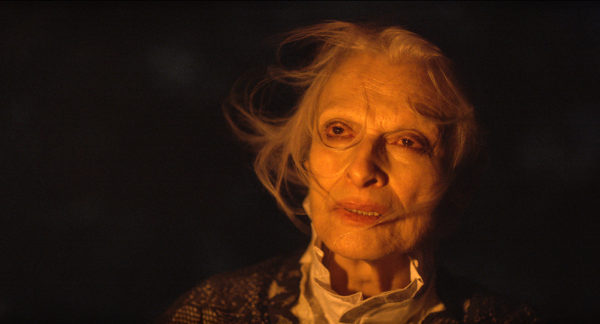
A death and the appearance of Rory Culkin as a character named The Intruder in the second Chapter throws events into chaos as the film plays with some interesting storytelling techniques. It is religious custom to spend the day of the funeral in silence, which shifts the focus of the story into the visual realm and thrusts Culkin’s new character into the limelight. It’s a memorable, malicious performance that plays exceedingly well off Fuhrman’s mute maid, and sets the stage for a confronting, albeit anticipated, outcome filled with bloodshed.
Overall the narrative of The Last Thing Mary Saw is arguably its weakest component. There’s not much to this historical treatise on the dangers of oppression and intolerance. The film’s strength, then, lies in its sumptuous production design and moody period aesthetic. The lighting is almost naturalistic, casting vast inky pools of black where the lamps don’t reach and stretching out the shadows across the corners of the room. The violence and supernatural elements, in particular, are highly memorable, as is the escalating dread that accompanies the inevitable climax; it’s evident where all of this drama is headed, not only because of the framing device, but also the tension between Mary, Eleanor and the rest of the family (minus naive Matthew) is combustible.
Ultimately The Last Thing Mary Saw is a beautiful, contemplative period piece with a few stand-out performances and gorgeous mise-en-scene. One only wishes that the storytelling was on the same level as the production design. 3/5
The Last Thing Mary Saw played at the 2021 Fantasia International Film Festival.
by Joe Lipsett

A beautifully maintained island full of young women that need to be “fixed.” A rebellious princess with a tragic past. A fantasy world with a mildly dystopian undercurrent, complete with a financial caste system. This is the world of Paradise Hills, the feature film debut of Alice Waddington. [Read more…]
by Joe Lipsett

You know that it’s summer when you start getting emails about Fantasia Film Festival. The largest genre film festival in North America is celebrating its 23rd year in Montreal, QB this summer. 130 features from the globe will be playing the fest, which runs from July 11 – Aug 1, 2019. [Read more…]
by Joe Lipsett
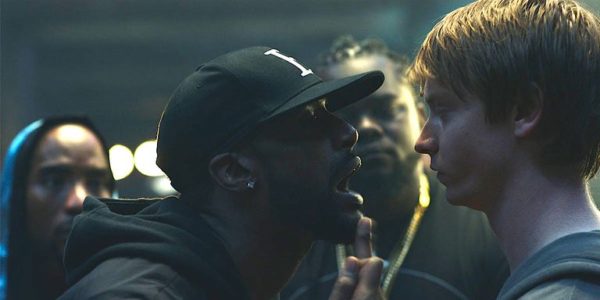
Fantasia 2018 coverage continues with Joseph Kahn’s rap battle film Bodied, which has been garnering outstanding reviews as a festival circuit favourite.
Let’s bitch it out… [Read more…]
by Joe Lipsett
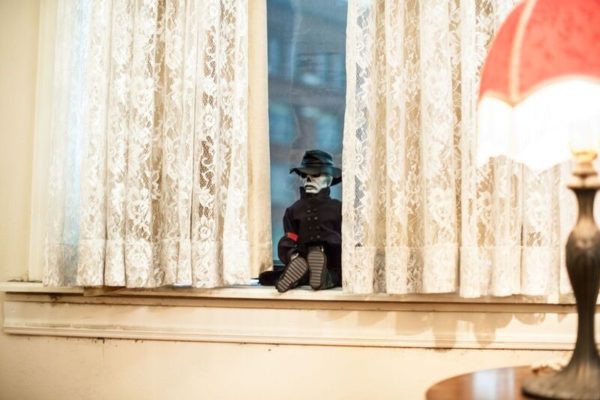
Fantasia Festival 2018 rolls on with a little gory help from approximately 40 murderous puppets. Time for Puppet Master: The Littlest Reicht.
Let’s bitch it out… [Read more…]